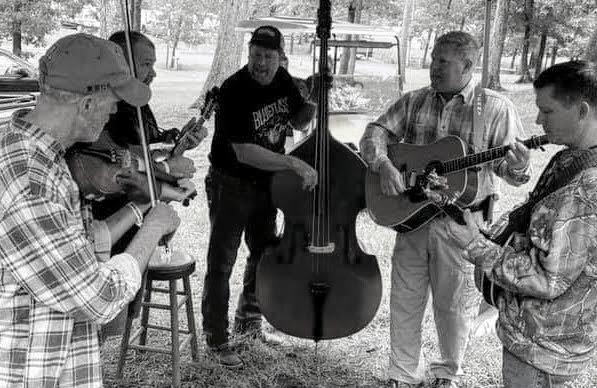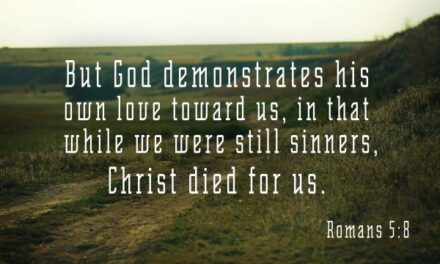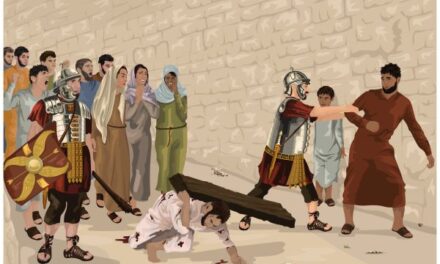Strings of the Soul
By Tim Tron
Burke County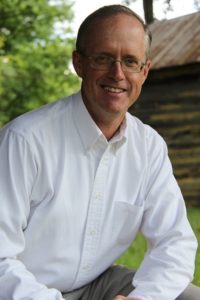
In a corner of the Spiritual Retreat is an instrument wall – a place where my stringed instruments hang from hooks made specifically for each type of instrument. They are kept there for ease of access, for one never knows when the “mood” might strike when that feeling of creativity and inspiration combine into a single thread wanting to intertwine into a melody.
While these pieces of wood and wire are built to make beautiful music, my budget for said devices has never been of the highest priority. That being said, they are worth far more in sentimental value than anything else. One does one’s best to maintain them, but with time, things age and dry out. So, it was the other day that that “mood” had struck, and as the fiddle was taken down, it quickly became apparent that the strings had loosened. With a violin, that is to be expected. Of all the instruments, it is held together by opposing forces. The tension of the strings holds up the bridge, which is supported from within by the sound post. If one of these components weakens and gives out, the entire function of the device is compromised. In this alone, there is a lesson, but for another day.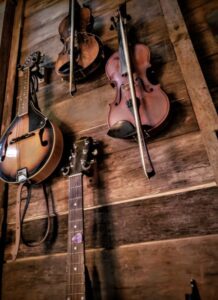
So, as I looked over the old “Ole Bull,” it was quickly discovered that all but one string was significantly out of tune. Working through the pattern J.W. Parsons taught me so long ago, I began to tighten each of the four strings. When it came to the “G” string, the lowest of the four, the tuning peg made an odd sound as it was being turned. The wooden peg began to crack and disintegrate as it was turned, literally crumbling in my fingertips – it was gone, useless to hold a string taunt. Distraught but not overwhelmed, my original song of inspiration had long ago escaped my thoughts. Now, there was a new challenge. What songs could be played on only three strings? From there, the fiddle and I walked down memory lane, discovering what could and could not be found in the limited number of wire strands. My fingertips were forced to find comforting notes in places they had seldom touched. It wasn’t pretty.
This morning, as my mind reflected upon yesterday’s encounter, it occurred to me how life and aging emulate the strings on my old violin.
The aging aspect comes from the memory of that entry-level Electrical Engineering class I took back at the University of Florida so many years ago. Dr. O’Malley, a tall, thin, white-haired elderly gentleman, then well past retirement age, walked in and began the first day’s intro quite unlike any that I had heard heretofore. “You will start today with 100 points,” he told the class looking over his wire glasses at a lecture hall full of beginning students. “From this point on, you will only lose points. It is up to you how many you lose. You will never gain them back,” he continued. In his eyes, you could almost tell there was more he wanted to say. Something about time, about life, lived. His words really hit hard. It was a thought that was truthful yet profound, and like it, life in the natural world was so much a parallel.
Many times in this journey, we find we are faced with a potential game-ending dilemma – either give up or adapt. Sometimes these are forces that are not of our doing. Illness, age, or accidents, to name a few, can take away our ability to function as we once were capable. Like that fiddle with now only three strings, we learn that if we are to go on, we must learn new ways to play that old song. Those finger positions on the strings that were once foreign, we are now forced to learn. A broken arm or hand of your favored limb makes writing almost impossible. But almost always, those who suffer learn to adapt and begin writing, albeit barely legible at first, and overcome their setback.
Likewise, when we step out of our comfort zone in faith and go to places or mission fields that we once thought foreign, they test our ability to adapt and grow. Jesus never told his disciples to stay put in Capernaum and make each other feel good. No, he told them to go out and spread the good news. “and he sent them out to preach the kingdom of God and to heal the sick.” He told them: “Take nothing for the journey–no staff, no bag, no bread, no money, no extra tunic. Whatever house you enter, stay there until you leave that town.”[1] It was painful. Not only were they trying to cope with the thought of not bringing any bedding and food, but they also had to remember what they had, in some cases, only recently learned. Jesus knew this would test them, but in the end, it would force them to grow stronger in their faith. Scripture tells us that through life’s trials, we will only become stronger and persevere, “My brethren, count it all joy when ye fall into divers temptations; Knowing this, that the trying of your faith worketh patience. But let patience have her perfect work, that ye may be perfect and entire, wanting nothing.” …But we glory in tribulations also: knowing that tribulation worketh patience; And patience, experience; and experience, hope….”[2]
There are those who, once they’ve learned to play beautifully on just the three strings in life, suddenly find that another string is taken away, leaving only two. It is then, the more challenged we become, the more we must not lean on our own understanding. Many give in to the feeling of being overwhelmed. They never knew Jesus as their Savior, so life, when it becomes unbearable, feels hopelessly lost. They seek answers in the life around them, but nothing can ease that emptiness and despair that is part of this world – no bottle is deep enough, no drug strong enough, and no emotional escape capable of breaking that spiral of pain and death. Only when the distraught and lost truly seek God is when they find hope.
Eventually, in some cases, those broken strings are restored. After the soul that had learned to dance upon the instrument with fewer strings finds a restored octave or more, their appreciation for what once was becomes all the more remarkable. So, it is with those who are reborn in Christ Jesus – their appreciation for things of God’s creation is from a new perspective. Their soul is restored. They learned in that absence, in that trial, through the fires of tribulation how much more they were capable. Their strength and faith are renewed. They become a new creature. “Therefore if any man be in Christ, he is a new creature: old things are passed away; behold, all things are become new.”[3] What was once uncomfortable or unknown becomes possible because something caused us to lean not on our own understanding.
Many return from mission fields, whether abroad or local, and find something about the world around them is not the same. Call it an awakening or a new awareness. Either way, when we learn to seek Him, we too find these peeling away layer after layer of blindness to what we once could not see. We can understand something about God a little more. With each step, we learn. With each blunder or mistake, we grow. During those painful endeavors, we sometimes feel like we will not survive. It is then we grow the most.
When the mood strikes, seek that thing that allows you to revel in your soul’s ability to thank God. When you find a string missing in your daily walk, press on toward the mark and let it not hinder your pursuit of the way, the truth, and the life.
Thanks be to God.
[1] Luke 9 NIV
[2] Romans 5:3-4 KJV
[3] 2 Corinthians 5:17 KJV
_____________________________________
Timothy W. Tron lives in Collettsville, NC. with his family. He is currently the Systems Administrator for the Computer Science Department at App. State. Timothy is the former Director of the Trail of Faith in Valdese, where he still volunteers and helps with tours. He is the author of a new Christian series, “Children of the Light”, with the first book being, “Bruecke to Heaven”, revised as “Bridge to Heaven”, and his recent book, being the second, “The Light in the Darkness”. He is an active blogger, artist, and musician. Timothy also has a BSEE from UF, and is a Lay Speaker. He is currently acting as the Faculty/Staff Liaison for the Ratio Christi campus ministry at App. State. He can be reached at trontw@appstate.edu You can visit his website at //www.timothywtron.com/ or see more of his writings HERE
_____________________________________

